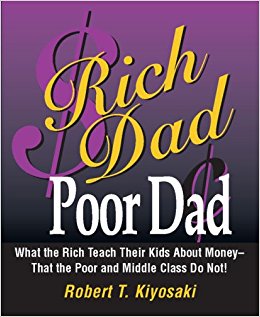Rich Dad, Poor Dad.
Some people just prefer the abbreviated version. These are the people you write TL;DR at the bottom of lengthy emails for. These are the people who say, “What’s Goodreads?” or who set their reading challenge goals really, really low. These are the people who read The Skimm and then skip to the skimmed down part of the first headline. If you are one of these people, I have good news for you: I am not like you! So, in that spirit, I will do you a service and tell you all the best, most important information about the latest books I’ve read.
Welcome to Saturday Spoilers. Where I share totally biased, spoiler-laden summaries of books I’ve recently finished. It’s like cliff’s notes with extra snark.
Let’s start with Rich Dad, Poor Dad. This book was life-changing. Like, oh-em-gee why didn’t someone tell me why I saw it everywhere my whole life.
The most important thing I got out of it was an all-consuming disdain for the American tax system. Days later I am still fuming from the revelation that I get taxed on money I earn and then taxed again when I spend it.
Along these same lines, my favorite quote was, “You’re taxed when you earn. You’re taxed when you spend. You’re taxed when you save. You’re taxed when you die.” It’s one of those things you know, but still makes your jaw drop when you read it like that. Bet I won’t find a way to pay less in taxes.
I was surprised to learn the history of taxes in America. Taxes were intended for the rich in classic Robin Hood fashion. Make too much money? Gotta feed the government so it can feed the people. Then the government, applying the “use it or lose it” principle of budgeting, said, “ooh I gotta spend all this free money.” Then the government spent the money and was like, “we need more money so now we’ve gotta tax everybody, even the poor people.” Whoops!
I guess I always thought of taxes as something that existed to ruin life for all people. Nope! Taxes were designed for the rich, but the rich ain’t about that bullshit and found loopholes. So now it mostly ruins life for the poor or rich people who don’t understand tax code. If I knew enough on the subject, I’d find loopholes, too. Suddenly, unexpectedly, I can relate to Republicans.
The other thing that blew my mind was the perk of having a corporation. Corporations only have to pay taxes after they pay expenses. Expenses like hotels, “business” dinners, and flights. Normal folk like myself pay taxes and only get to spend what’s left. Fuck that.
You may surprised to know that there was only one chapter on taxes. Maybe you just need to read that one.
At the beginning, Kiyosaki says the only thing you need to know is that to make money, you need to invest in assets, not liabilities. Unfortunately, he never really clarifies how you can avoid liabilities. The few tips I grabbed were: real estate is a money maker, but the house you live in is a liability, and even talented writers have to be booksellers.
What matters, though, is that this book inspired me to learn more: more about accounting, more about investing, more about markets. I might even spend some money to make money, which, by the way, is a totally foreign concept for me.
Was that still too long for you? Okay, here’s the gist. Robert T. Kiyosaki grew up with a capitalist role model who taught him how to make money work for him and now he no longer has to work for money. I recommend this read for anyone who thinks going to work everyday to put make just enough to put a roof over your head is a total snooze.

